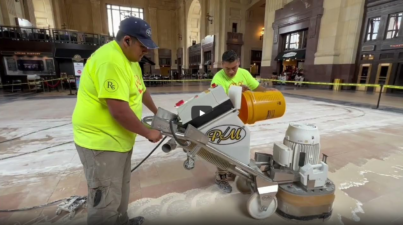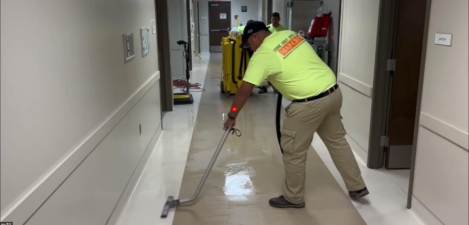Selecting the appropriate floor sealer is a crucial decision when it comes to preserving and enhancing the lifespan of your flooring. With various options available, each tailored to different materials and applications, understanding your specific needs and the characteristics of each sealer type is essential. There are a few floorcare companies in the Kansas City Metropolitan Area who have the ability to help and guide the client in selecting quality products. Let’s explore the key factors to consider and guide you in choosing the right floor sealer for your project.
- Identify Your Flooring Material: Different flooring materials require specific types of sealers to ensure compatibility and optimal protection. Whether you have hardwood, concrete, tile, or natural stone floors, identifying the material is the first step in selecting the right sealer
- Types of Floor Sealers:
Penetrating Sealers: Ideal for porous surfaces like natural stone and unglazed tile, penetrating sealers work by penetrating the material, forming a protective barrier within. They provide a natural look and are suitable for surfaces that need to breathe.
Film-Forming Sealers: Commonly used on concrete and certain types of tile, film-forming sealers create a protective layer on the surface. They offer enhanced durability and water resistance. Choose between acrylic, epoxy, or polyurethane-based sealers based on your specific needs.
Enhancing Sealers: If you want to enrich the color and natural features of materials like concrete or natural stone, enhancing sealers are designed for this purpose. They provide a glossy or matte finish while offering protection.
- Consider Maintenance Requirements:
Evaluate the maintenance demands associated with each type of sealer. Some may require periodic reapplication, while others offer long-lasting protection with minimal upkeep. Consider your willingness and ability to maintain the floors regularly.
- Assess Environmental Impact: For environmentally conscious consumers, water-based sealers are a more eco-friendly option compared to solvent-based counterparts. Water-based sealers emit fewer volatile organic compounds (VOCs), making them a greener choice with minimal impact on indoor air quality.
- Indoor vs. Outdoor Use: Outdoor surfaces face different challenges, such as exposure to UV rays and harsh weather conditions. Ensure that the chosen sealer is suitable for the specific environment. Exterior sealers often include UV inhibitors to prevent fading and protect against the elements.
- Test on a Small Area: Before applying any sealer, it’s advisable to test it on a small, inconspicuous area to ensure compatibility and assess the desired finish. This step helps avoid potential issues and ensures satisfaction with the final result.
Conclusion: Choosing the right floor sealer involves a thoughtful evaluation of your flooring material, maintenance preferences, environmental considerations, and intended application. By understanding the characteristics of different sealers, you can make an informed decision that aligns with your specific needs, ultimately enhancing the beauty and longevity of your floors. Always follow manufacturer guidelines for application and maintenance to achieve the best results.




